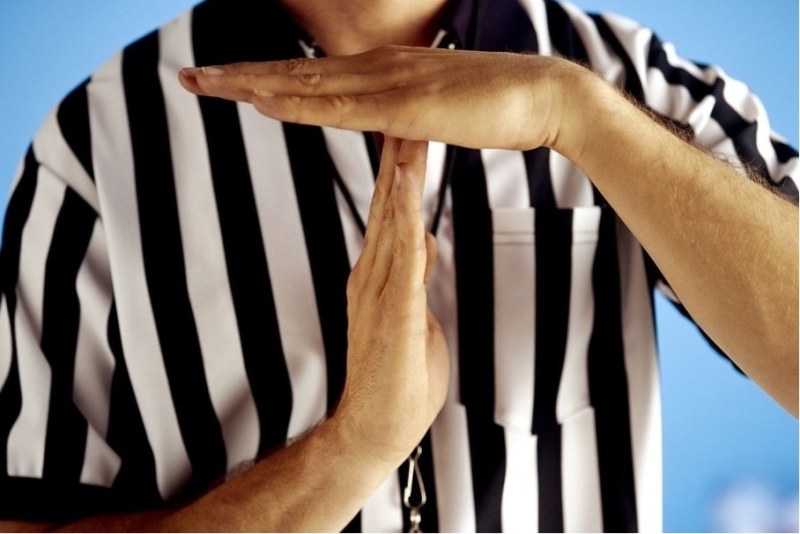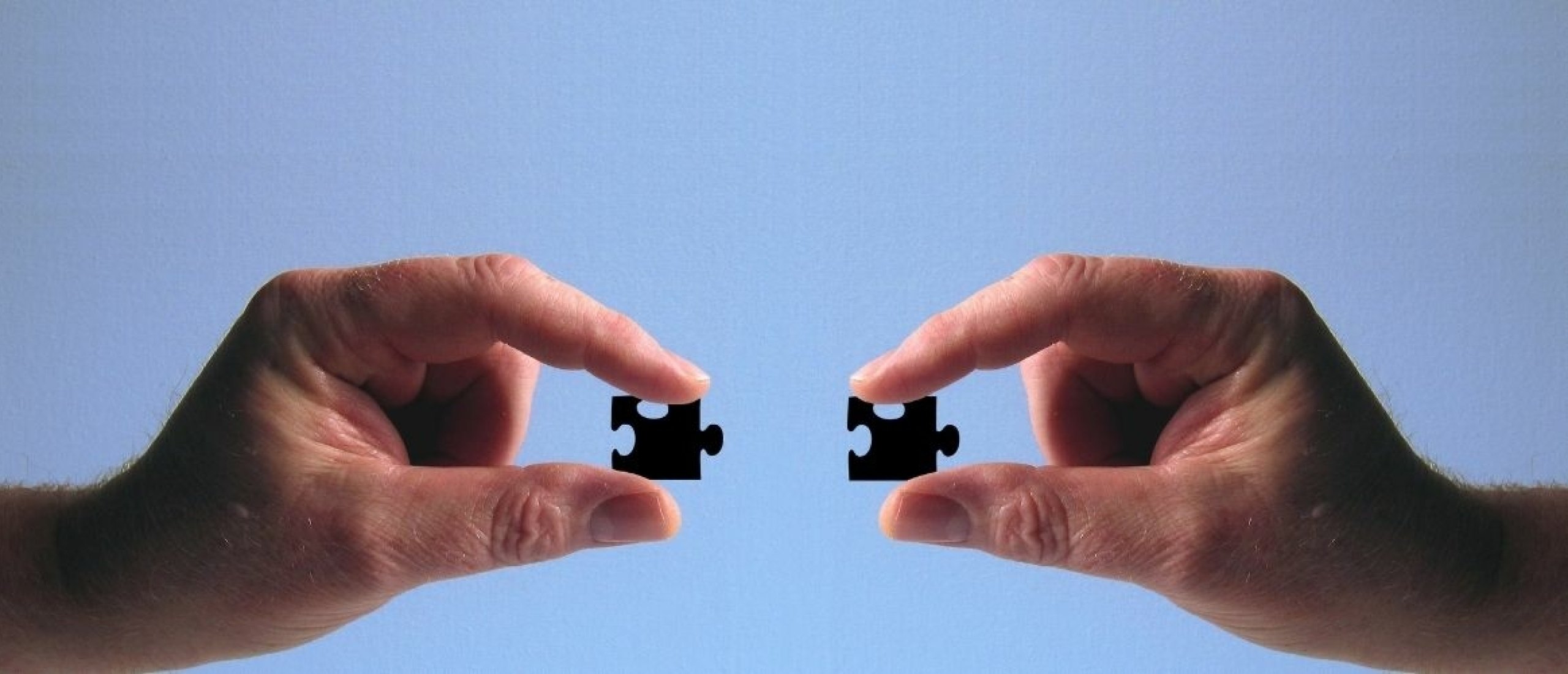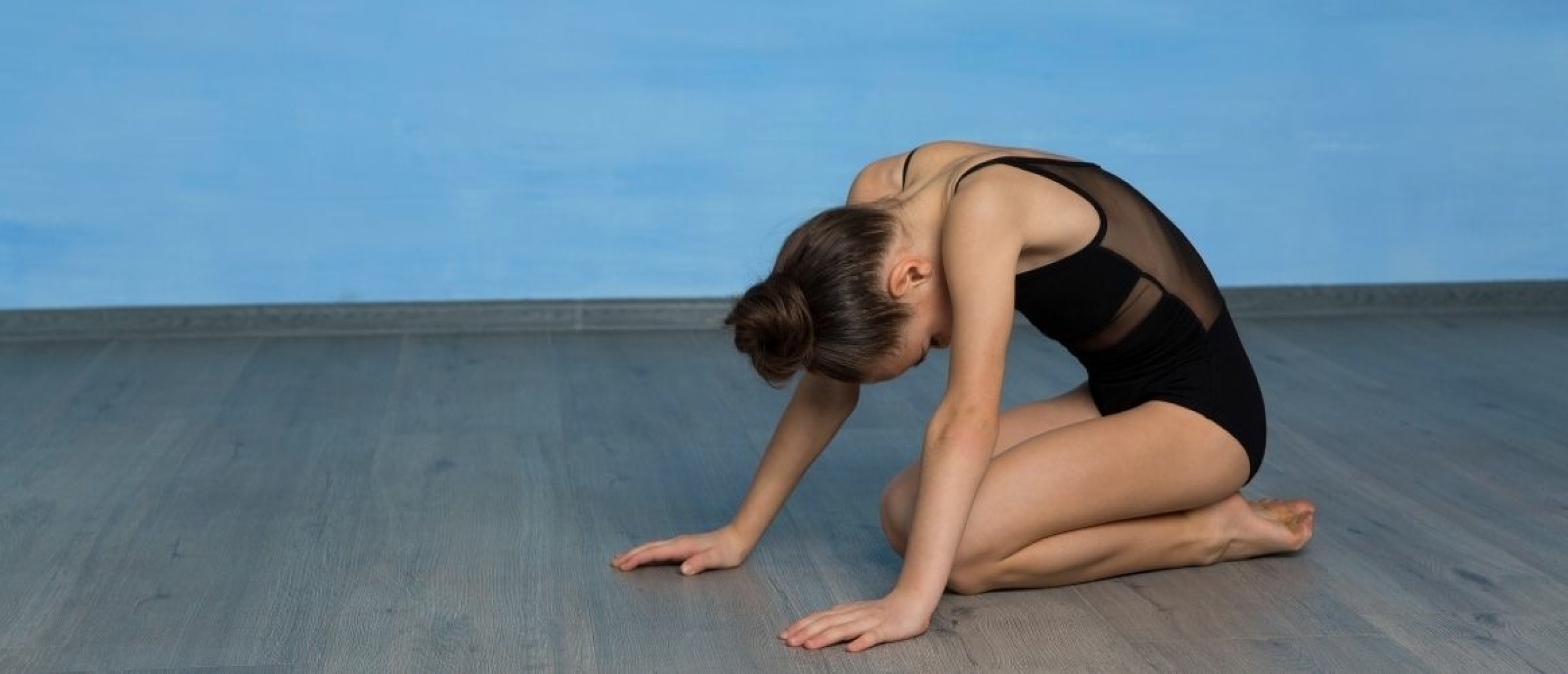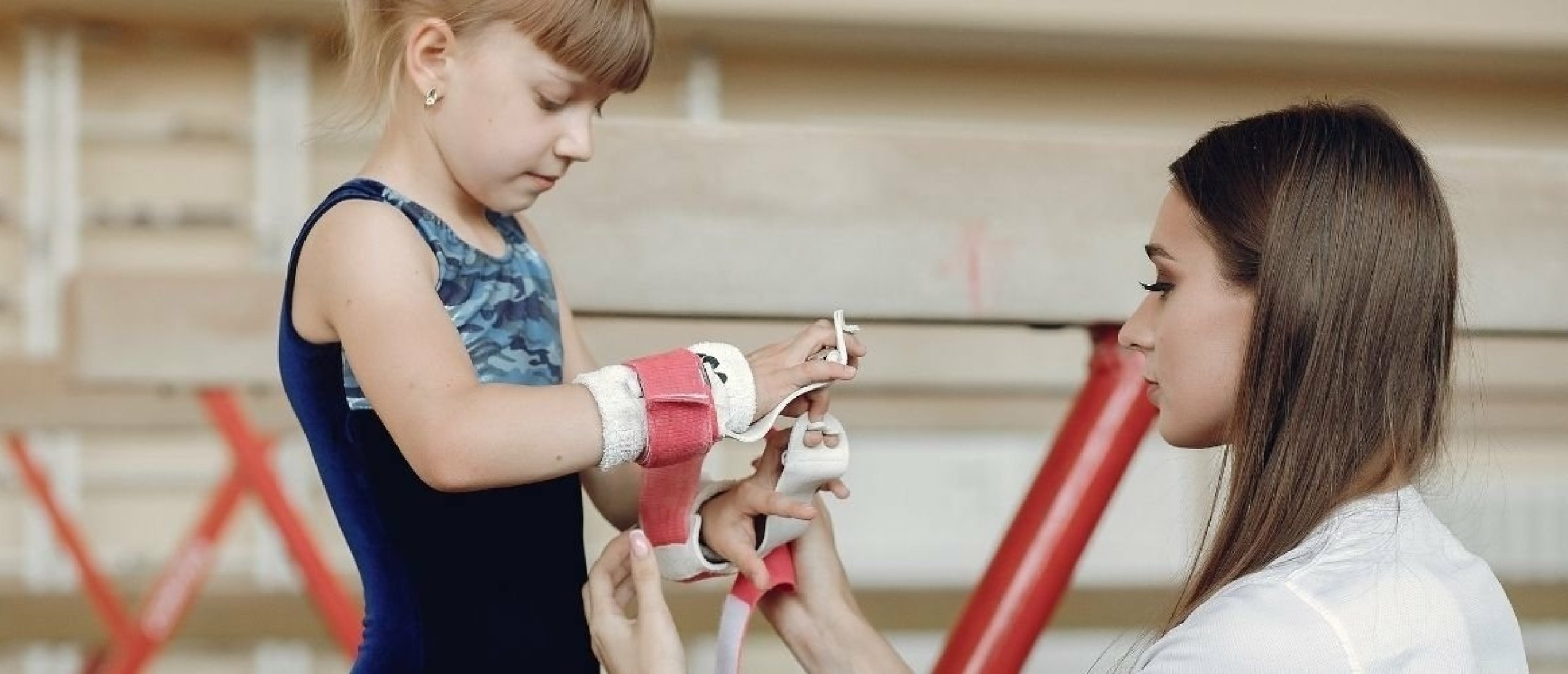How do you deal with difficult behaviour in gym class? That is a question many trainers ask themselves, especially when they start teaching. It is not easy for every trainer or coach to keep the students under control during the lesson. Maybe you don't have to deal with it so much during a selection lesson, but certainly if you teach recreation and especially in the 'more difficult' quarters, it is useful to have these skills under control. In this blog some tips how to deal with difficult behaviour in the lesson.
Threatening difficult behaviour
You may have heard one of these quotes before: "Will you please pay attention?" or "Please pay attention!", "Stop messing around. Maybe a sanction: "If you don't listen we won't play the end game!" So a little threat or just "Stop it!"
You see teachers who have a little trouble controlling their students become more and more threatening and find it harder and harder to control their students. I noticed this myself when I started teaching at the age of 16. I was thrown in at the deep end and did not know how to control a group. Starting to teach a boys' group, not every boy was easy or willing to listen to me. They showed a lot of difficult behaviour. This really bothered me in the beginning. In the beginning, this also took away from my enjoyment of teaching. That is why I think it is important to teach other people how to deal with difficult behaviour.
The essence of keeping control
In any case, you want to retain control over your teaching groups. Especially because then we can offer more safety in our gymnastics lessons. If there is a lot of safety, we generally have more fun in the lessons. So not only fun for the athletes but also for yourself as a trainer, coach or teacher.
Safety is, of course, about mental safety as well as physical safety, which is very important. In a lesson, it often starts when someone picks up the pawn and starts shouting at the other children. If you don't do anything about it, it is possible that your lesson will get out of hand in no time. And maybe even fights in your lessons. This kind of awkward behaviour is something you want to avoid at all costs.
It will probably happen more in a normal gym class than in a gym class, for example. I myself, for example, taught as a combination functionary. I also gave many recreational lessons as a gymnastics trainer. In many different neighbourhoods, also in the 'worse' neighbourhoods. I experienced many different situations with difficult behaviour. But I also trained many different students as a teacher. And therefore heard many different stories. So I can well imagine that for some trainers, tips are useful.

How do you prevent difficult behaviour?
One of the most important things is that you always keep your explanations short. The shorter the explanation, the better the athletes can focus and concentrate on you. And the less they can complain. If you want to increase the focus so that they listen more attentively, always make them sit down. I see many beginning trainers leave their athletes standing. When children are standing, they are much busier than when they are sitting. So at least have them sit down during the explanation, then they will automatically be concentrated and will not pick at each other as much.
Above all, let them move around a lot. The more they can move, the less they can talk and the less they will be distracted during your lesson.
Rules
In addition, setting rules is important in order to prevent difficult behaviour. Rules for the pupils, but also rules for yourself. For example, how many warnings do you give at most? Do you have a picture of that for yourself? Sometimes, in practice, you see trainers give warnings 10-20 times and then they have no effect anymore. So think about how many cautions you will give at most and what sanctions you will give if a sportsman has already had a cautions. What kind of sanction do you give to solve difficult behaviour?
If you have set rules for yourself, how do you make sure that you make them clear to the pupils? How do you ensure that they also listen to those rules? Actually, in your lessons you have to make sure that you condition the rules a little. Because the pupils also have to get used to your rules, especially if you are a new teacher. I have worked in many different sports groups. One trainer has other rules than the other, and if you take over a lesson, for example, you might have other rules than your predecessor. That's why you have to make your rules clear to the athletes you teach.
Practising the rules
Make sure the rules are clear from the start so they know where they stand. It is also important to train these rules. For example, when I started with a new lesson group, especially recreational lesson groups, or when I gave gymnastics lessons in schools, I would often start with a warm-up where everyone was allowed to run around the room. That was mainly primary school age and when I blew my whistle I would shout "Three, two, one" and they would have to sit down. The one who sat first got a few points from me. In that way, they could earn points in a kind of game and we would see who gathered the most points.
For the students, it was then a fun warm-up game where they did their best to sit as fast as possible. My thinking behind it is that I want them to train this scheme, so they know that when I whistle, and call "Three, two, one", that I want them to sit. This will get them used to doing this as quickly as possible and reward them for it.
This is a method to ensure that they listen carefully to you. Especially with large groups of students, I use a whistle. In some lesson groups, there were as many as thirty pupils per reading. I know that if I have to shout a lot or raise my voice often, then I just lose my voice. So in such lessons I use a whistle so that it doesn't cost me my voice. In selection training, for example, there is usually no need to use a whistle.

How do you deal with difficult behaviour?
In any case, be consistent. Always try to be consistent in what sanctions you give, when you give warnings and where you draw the line. If you have observed something and you want to address someone about it in class, make sure you explain what you saw.
Also make sure that you speak at the same level as the person you are sanctioning in your lesson or explaining his behaviour to, to be on the same level. Make agreements with the pupil you want to address and immediately give the consequence. Or explain what the consequences might be if it happens again, for example. You can give this to the pupil straight away so that he knows what will happen if he does it again.
Individual versus in a group
Sometimes we have the tendency to address someone within the group. I would advise you to always think carefully during the lesson whether it is wise to address the pupil in front of the whole group or whether it is better to wait and walk up to him or her later and address him or her personally. Sometimes it can be very damaging for a child to be burned down in front of the whole group. So I would always try to avoid that. Unless you do it very consciously sometimes, but then you must know the consequences and apply it consciously. Preferably try to tackle the individual, which usually works better than for the whole group.
We have already talked briefly about boundaries and your own limits. It is very important to know your own boundaries. What do you tolerate and what not? For example, is it annoying when a pupil talks through you during your explanation or have you already let them know that they have to be quiet when you are explaining something? What things do you find annoying and when do they go too far for you? How often should you warn someone before you say something? You can set rules for yourself for this.
In general, the rule of three works well for me, so the moment I have warned someone three times, a sanction follows. Of course, it depends on the lesson I am giving and the group I am in front of, so it doesn't always work that way. But you have to know what your own limits and rules are.

Playing angry or being angry?
Another important point that I would like to give you and that I learned as a gym teacher: playing angry is allowed, but being angry is not. Most of the time when you play angry you can use that to address someone. But the moment you are really angry you have generally intervened too late. When we are really angry, we have too much to do with our own emotion. As a result, we can react much more violently to a pupil than we perhaps intended. So if you have become really angry personally, which of course can happen once in a while, you have generally intervened too late with regard to the things you would like to see differently in terms of difficult behaviour. So always try to prevent the worst first, because you intervene too late and become personally angry.
Tools for the classroom
A few tools that can help with your lessons.
Whistle
I have already mentioned this: when I whistle, I shout "Three, two, one" and then they have to sit, for example. Or when I was an intern at the ALO at a primary school, I was impressed at the very first lesson by a kindergarten gym teacher who clapped his hands with two blocks and suddenly all the kindergarteners sat down. I had never seen so many pre-schoolers listening directly to a teacher. I found that a very beautiful way. I copied that from him too, but then in the form of a whistle.
Pawns
These can help, but only if the pawns are very visible to a child, especially in special education or a child with ADHD. For example, it can help when he has done something well or when he receives warnings that he can see from the pawns what the status is, whether he has done his best, for example. It is a visible method that can help.
Hourglasses
I myself used hourglasses a lot, especially with very large teaching groups or groups that were a bit more difficult, such as large recreational boys' groups. You could see how long the hourglass lasted. I usually had a couple of hourglasses with me of two, three and five minutes. You could also buy others. Then when they got a warning from me, they got an hourglass. The first time, for example, they got a two-minute time-out.
The advantage of an hourglass is that a child can see how long he has a time-out and then knows when he can join in again. They were annoyed that they had a time-out, but they knew that they could join in again afterwards. The second time for example three minutes and the third time for example five minutes. So they also know that the next warning will have other consequences. You might also consider sending someone to the dressing room after the third warning or not allowing them to play in the endgame. It depends on what consequences you choose, but at least it gives the pupils a lot of insight.
Note: If you have given someone a sanction, you must discuss why you did it and don't forget the pupil either. It has probably happened to you that you have forgotten a pupil after you have given a punishment. Be honest and apologise for that.

Additional tips
First of all, look at your own behaviour and actions. If you notice that difficult behaviour arises during your lesson, first see if it might be due to your actions. Before you start laying consequences on the difficult behaviour of a student. It could be that your organisation was not as good as it should have been and things were a bit messy. Maybe you were too late once. Then it can help a lot if you adjust your own actions instead of blaming it on a particular pupil. Especially if a pupil has already received a sanction.
It is very important to look at what you yourself could possibly do differently. Also look at what actions you can do with the pupils.
Consistency in difficult behaviour
Do not be afraid to be consistent and fair. We often see younger trainers being a bit too nice in the beginning. But it is very important to be consistent in the things you do and do not want to see in your lessons. Being consistent is not the same as being strict. You don't necessarily have to be nasty or unpleasant with students. Just be very consistent so they know where they stand. Children like that too.
In a recreational boys' lesson, I had benched a boy three times with a time-out. At the end of the lesson, he came up to me and said "Master, I've had the best lesson ever!" So I was totally surprised, he had been given three time-outs and despite that he had had a super fun lesson and still thought I was a great teacher. So even if you are consistent and fair, children will not find that annoying and they often appreciate it when you are consistent and clear.

Empowering.
I prefer to coach positively rather than take sanctions. That's why I first look to see if I can address an unpleasant situation in a positive way before resorting to a sanction. Positive coaching is very important for gymnastics anyway. For example: "Jaap, I saw that you helped Annemie, I am really proud of you. If Jaap is normally showing some difficult behaviour and you have seen that he has helped someone, try to use that moment to let him know that you are very happy with his behaviour. This will probably make him behave better.
Of course, how you handle the rules can vary a lot from class to class and from teacher to teacher. If you have any ideas of your own, please feel free to share them. If you would like more tips, you can find free downloads on our website.
Platform
We also have a trainer platform. This is a platform for gymnastics trainers that provides them with tools to prepare their gymnastics lessons more easily. Think of ready-made lesson preparations, forms of organisation, coaching methods, methodical videos. So all kinds of things to help you prepare your lessons better and easier.
I hope these tips have been useful to you and please let me know in the comments if you do anything with them.
Good luck with your gymnastics lessons!






